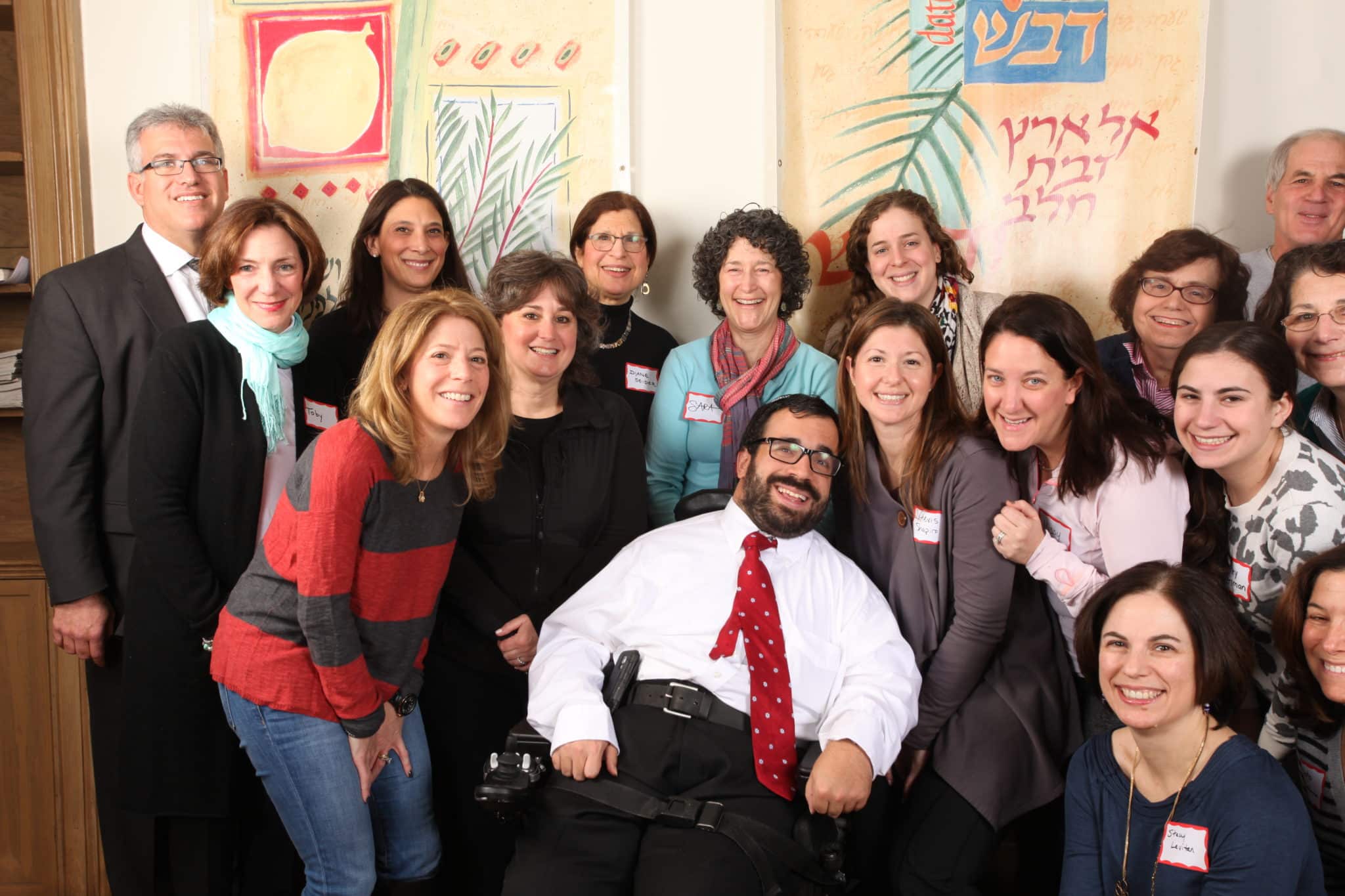 Matan Koch meets with the disability inclusion committee of Temple Beth Hillel-Beth El, outside Philadelphia, Pennsylvania, a few years ago. Photo by Aaron Benau
Matan Koch meets with the disability inclusion committee of Temple Beth Hillel-Beth El, outside Philadelphia, Pennsylvania, a few years ago. Photo by Aaron Benau We like to think of hope as a useful, even indispensable emotion. “No matter what,” we often are told, “never lose hope.”
No matter how low we go, how dark things get, how painful life becomes, hope keeps us in the game. The alternative is despair, which gives us no chance.
Proclaiming the value of hope, however, isn’t enough. The more urgent question is: How do we nourish hope and make it actionable? And what is the Jewish view on hope?
“The Greeks gave the world the concept of tragedy. Jews gave it the idea of hope,” Rabbi Jonathan Sacks wrote. “The whole of Judaism — although it would take a book to show it — is a set of laws and narratives designed to create in people, families, communities and a nation, habits that defeat despair.”
Sacks characterizes this impulse as the refusal to accept darkness as inevitable. That’s why, he wrote, “It is no accident that so many Jews are economists fighting poverty, or doctors fighting disease, or lawyers fighting injustice.”
No matter how low we go, how dark things get, how painful life becomes, hope keeps us in the game. The alternative is despair, which gives us no chance.
Last year, I met one of those activist lawyers, Matan Koch, just before he moved to Los Angeles. Koch, who gets around in a wheelchair, is the subject of our cover story this week.
Since December, he has been the California Director of RespectAbility, a fast-rising nonprofit working to advance opportunities for people with disabilities.
Koch, 38, is a quadriplegic, born with cerebral palsy. But, as Staff Writer Ryan Torok wrote, “that didn’t stop him being admitted to Yale University at the age of 16; serving as his alma mater’s president of the student disability community; becoming a Senate-confirmed appointee on the National Council on Disability in the Obama administration; and working as a consultant for Jewish organizations, advising Jewish professionals and students on how to be more inclusive of people with disabilities.”
Koch’s life embodies hope through action. When you’re born with severe physical limitations, hope is not the obvious choice — despair is. Koch refuses to see despair as inevitable.
There are millions more like him, human beings who have been dealt difficult hands and who must learn to muster hope from the toughest hardship.
We can learn from them as we navigate the bewildering storms of COVID-19.
The news that spews daily from this pandemic is unbearable. In just a few months, more than 90,000 people have lost their lives and 35 million people their livelihoods. No one seems to know how long this will go on. Every new low seems to come with a trap door.
This is a recipe for despair. And yet, despair is the one emotion we cannot afford. Sadness, melancholy, certainly; despair, no.
Through a sustained struggle against the reality he was born with, Koch created a new reality, one of hope and possibility.
“To be a Jew is to be an agent of hope in a world serially threatened by despair,” Sacks wrote. “Every ritual, every mitzvah, every syllable of the Jewish story, every element of Jewish law, is a protest against escapism, resignation or the blind acceptance of fate.
“Judaism is a sustained struggle, the greatest ever known, against the world that is, in the name of the world that could be, should be, but is not yet.”
The devastation of COVID-19 is the world that is, it is our reality, but it is not our fate.
The existence of Koch’s physical disability is his world that is, it is his reality, but it is not his fate.
Through a sustained struggle against the reality he was born with, Koch created a new reality — one of hope and possibility.
Today, in the midst of a historic crisis, our collective mission is to create this new reality, to engage in a sustained struggle toward the world that could be and should be.
If a lawyer who uses a wheelchair can get up every morning and do his share in the struggle, so can we. What gives me hope are the millions of acts of kindness happening across our nation that sustain this struggle — volunteers delivering supplies to the needy, caring for the elderly and the lonely, offering their expertise and talents, and simply trying to help out any way they can.
There are forces working against this unity of purpose. The fiery passion of political partisanship is clearly one of them. We ought to engage in vigorous debates on how to move forward, but we can’t allow poisonous and divisive forces to undermine our common struggle.
That may be easier said than done, but that is the very essence of a struggle — not taking the easy way out.
Matan Koch has never taken the easy way out. Emulating his spirit of commitment will ensure we never lose hope.























 More news and opinions than at a Shabbat dinner, right in your inbox.
More news and opinions than at a Shabbat dinner, right in your inbox.